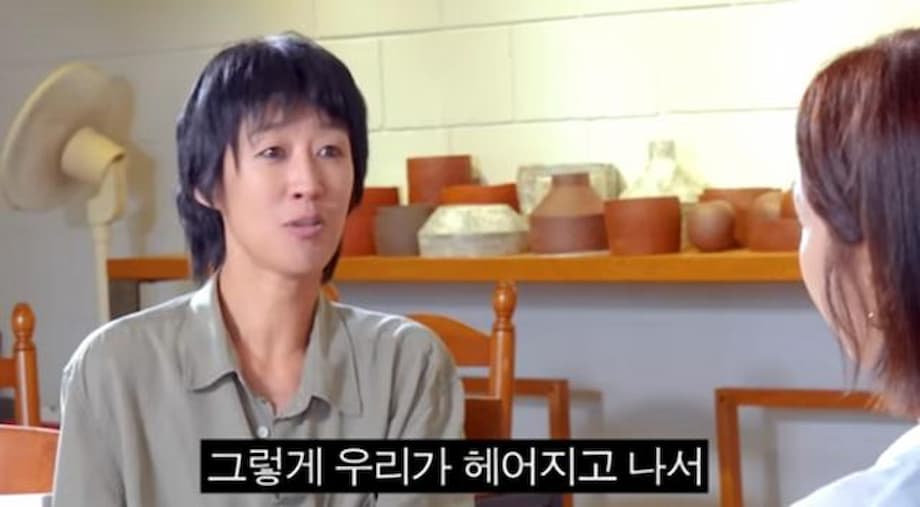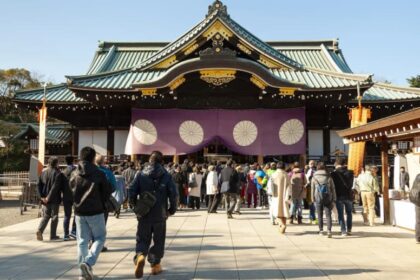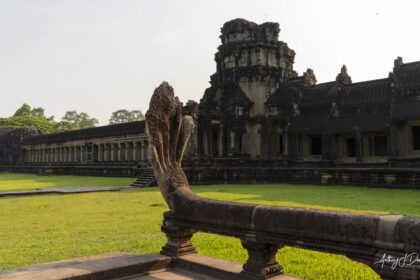Korean Celebrities Redefine Family Norms
In recent years, South Korea has witnessed a remarkable transformation in how family is defined and perceived, with celebrities at the forefront of this cultural shift. Once a society deeply rooted in Confucian traditions and rigid expectations, Korea is now seeing its public figures openly challenge and reshape the narrative around family, marriage, and personal identity. As divorces, single parenthood, and blended families become more visible, these stars are not only sharing their personal journeys but also helping to reduce stigma and foster a more inclusive understanding of what it means to be a family in modern Korea.
- Korean Celebrities Redefine Family Norms
- How Traditional Family Norms Shaped Korean Society
- Celebrity Influence: Breaking the Mold
- The Double-Edged Sword of Fame: Societal Scrutiny and Pressure
- Changing Beauty Standards and Personal Expression
- Reality TV and the Normalization of Diverse Families
- Societal Backlash and the Path Forward
- In Summary
How Traditional Family Norms Shaped Korean Society
For decades, the ideal Korean family was depicted as a married heterosexual couple with children, often living with or near extended relatives. This model, heavily influenced by Confucian values, emphasized filial piety, collective harmony, and the subordination of individual desires to family and societal expectations. The concept of “saving face”—maintaining a flawless public image—was paramount, especially for those in the public eye.
Popular culture, including K-dramas and films, reinforced these ideals, often portraying melodramatic tales of sacrifice, innocent love, and the triumph of traditional values. As the Korean Wave (Hallyu) swept across Asia and the world, these narratives became a key export, shaping international perceptions of Korean society.
Confucian Roots and Societal Pressures
Confucianism, which underpins much of East Asian culture, places the family at the center of social order. In Korea, this has translated into strong expectations around marriage, gender roles, and intergenerational responsibility. Deviations from the norm—such as divorce, single parenthood, or non-traditional relationships—were long considered sources of shame, often leading to social ostracism.
Celebrity Influence: Breaking the Mold
Against this backdrop, Korean celebrities have begun to challenge these deeply ingrained norms. High-profile figures are now speaking candidly about their experiences with divorce, single parenting, and blended families, using their platforms to spark conversations that were once taboo.
For example, reality shows like The Return of Superman and I Live Alone have become cultural touchstones, offering viewers intimate glimpses into the lives of single parents and unmarried celebrities. These programs not only entertain but also normalize diverse family structures, showing that happiness and fulfillment are not limited to traditional models.
As reported by The Korea Times, the willingness of celebrities to share their personal stories has encouraged broader societal acceptance and reduced the stigma around non-traditional families. Their influence extends beyond entertainment, shaping public discourse and policy debates about family diversity.
Personal Stories and Public Impact
When a well-known actor or singer discusses their divorce or journey as a single parent, it resonates with millions who may be facing similar challenges in private. These revelations often spark empathy and solidarity, challenging the notion that such experiences are shameful or isolating.
Moreover, the visibility of blended families—where parents and children from previous relationships come together—has helped to broaden the definition of family. Celebrities who embrace these dynamics publicly send a powerful message: love, support, and belonging are not confined to traditional structures.
The Double-Edged Sword of Fame: Societal Scrutiny and Pressure
While celebrities have the power to influence public attitudes, they also face intense scrutiny and pressure to conform. South Korean society is known for its unforgiving stance toward public figures who deviate from expected norms, especially when it comes to personal conduct and family matters.
The tragic deaths of stars like Kim Sae-ron and Lee Sun-kyun have reignited debates about the harsh treatment of celebrities in Korea. After Kim Sae-ron’s drunk driving incident in 2022, she faced relentless media criticism and online harassment, struggling to find work and ultimately dying at the age of 24. Her story, as covered by The Independent and Asia News Network, highlights the zero-tolerance culture and the lack of opportunities for redemption in the entertainment industry.
“Korean society’s rigorous expectations, collectivism, and pressure to conform foster a zero-tolerance environment where personal failures, especially among celebrities, are seen as irredeemable,” sociologists explain in the Asia News Network.
Women, in particular, often face harsher consequences for personal scandals, reflecting broader gender inequalities in both the industry and society at large.
Media Frenzy and Mental Health
The relentless coverage of celebrity scandals by mainstream and social media amplifies public scrutiny. Sensational headlines and online gossip can quickly destroy reputations, leaving little room for recovery. Experts and advocates have called for reforms to protect artists’ privacy and mental health, but systemic issues persist.
As noted by The Hollywood Reporter, the suicide rate among Korean entertainers is among the highest in developed nations, underscoring the urgent need for more compassionate policies and public attitudes.
Changing Beauty Standards and Personal Expression
Family norms are not the only aspect of Korean society undergoing transformation. Beauty standards, closely tied to family and societal expectations, are also evolving. The rise of the so-called “K-face”—a look characterized by double eyelids, a high nose bridge, and a V-shaped jaw—has fueled a booming plastic surgery industry, with both celebrities and ordinary citizens feeling the pressure to conform.
As Business Insider reports, cosmetic procedures are often seen as investments in one’s future, with families sometimes offering surgery as a reward for academic achievement. Yet, some celebrities are now pushing back against these expectations, choosing to embrace their natural features or even undergo tattoo removal to align with shifting values.
“I realized that changing my face would mean losing my resemblance to my family, whose features connect me to my heritage. Ultimately, I left Korea unchanged, recognizing both the power of beauty standards and the importance of self-acceptance,” writes a Korean-American journalist reflecting on her experience with the plastic surgery industry.
Tattoo Removal: A Cultural Reset
Tattoos, once associated with criminality or rebellion, are now more common among young people and celebrities. However, a trend of tattoo removal has emerged, with stars seeking to rebrand themselves or align with more traditional values. This movement, as described by The Times of India, reflects the ongoing negotiation between personal expression and societal expectations in Korea.
Reality TV and the Normalization of Diverse Families
Korean reality television has played a significant role in reflecting and shaping changing family norms. Shows like The Return of Superman (which features celebrity dads caring for their children) and I Live Alone (which follows single celebrities) offer viewers a window into alternative family structures and lifestyles.
According to Marie Claire and Yahoo, these programs have become immensely popular, both domestically and internationally, for their authentic portrayals of daily life. By highlighting the joys and challenges of single parenthood, cohabitation, and unconventional relationships, reality TV is helping to destigmatize non-traditional families and broaden public understanding.
K-pop Groups: Bonds Beyond Blood
Even within the world of K-pop, the concept of family is being reimagined. Members of idol groups often describe their relationships as “deeper than family,” emphasizing emotional bonds, mutual support, and shared experiences. This alternative model of kinship resonates with fans and reflects a broader shift toward valuing chosen families and communities of care.
Societal Backlash and the Path Forward
Despite these positive developments, backlash persists. Many celebrities who break from traditional norms still face online harassment, career setbacks, and public shaming. The entertainment industry, while slowly adapting, remains cautious about embracing diversity, fearing negative reactions from conservative segments of society.
However, the growing visibility of diverse family structures and the willingness of public figures to speak out are gradually shifting attitudes. Younger generations, in particular, are more accepting of non-traditional families and supportive of individual autonomy. Policy debates around family law, adoption, and LGBTQ+ rights are gaining traction, signaling a potential for broader societal change.
Calls for Compassion and Reform
The deaths of beloved celebrities have prompted soul-searching and calls for reform within the media, entertainment industry, and society at large. Advocates urge greater sensitivity, privacy protections, and mental health support for public figures, as well as a more nuanced understanding of personal failure and redemption.
“Society should allow individuals to move forward after facing consequences. They emphasize the need for greater tolerance and understanding that celebrities, despite their image, are human and prone to mistakes,” experts told Asia News Network.
In Summary
- Korean celebrities are challenging traditional family norms by openly discussing divorce, single parenthood, and blended families.
- Confucian values and societal pressures have historically enforced rigid family expectations, but these are gradually evolving.
- Media scrutiny and public shaming remain significant challenges, with tragic consequences for some stars.
- Changing beauty standards and trends like tattoo removal reflect the ongoing negotiation between personal expression and societal expectations.
- Reality TV and K-pop culture are helping to normalize diverse family structures and alternative forms of kinship.
- While backlash persists, younger generations and advocates are pushing for greater acceptance, compassion, and legal reform.












